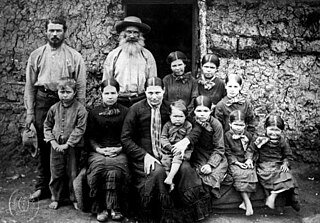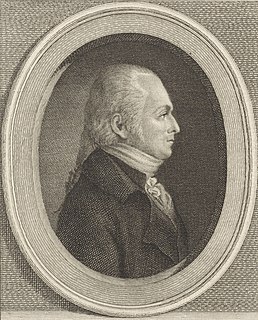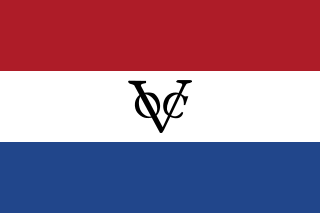Related Research Articles

Boer is Dutch and Afrikaans for "farmer". In South African contexts, "Boers" refers to the descendants of the proto-Afrikaans-speaking settlers of the eastern Cape frontier in Southern Africa during the 18th and much of the 19th century. From 1652 to 1795, the Dutch East India Company controlled this area, but the United Kingdom incorporated it into the British Empire in 1806.

The Cape of Good Hope, also known as the Cape Colony, was a British colony in present-day South Africa, named after the Cape of Good Hope. The British colony was preceded by an earlier Dutch colony of the same name, the Kaap de Goede Hoop, established in 1652 by the Dutch East India Company. The Cape was under Dutch rule from 1652 to 1795 and again from 1803 to 1806.

The Union of South Africa is the historical predecessor to the present-day Republic of South Africa. It came into being on 31 May 1910 with the unification of the Cape Colony, the Natal Colony, the Transvaal, and the Orange River Colony. It included the territories that were formerly a part of the South African Republic and the Orange Free State.
The written history of the Cape Colony in what is now South Africa began when Portuguese navigator Bartolomeu Dias became the first modern European to round the Cape of Good Hope in 1488. In 1497, Vasco da Gama sailed along the whole coast of South Africa on his way to India, landed at St Helena Bay for 8 days, and made a detailed description of the area. The Portuguese, attracted by the riches of Asia, made no permanent settlement at the Cape Colony. However, the Dutch East India Company (VOC) settled the area as a location where vessels could restock water and provisions.
The following lists events that happened during the 1790s in South Africa.
The following lists events that happened during the 1780s in South Africa.
The following lists events that happened during 1876 in South Africa.
The following lists events that happened during 1903 in South Africa.
The following lists events that happened during 1904 in South Africa.
The following lists events that happened during the 1670s in South Africa.

Simon van der Stel was the last commander and first Governor of the Dutch Cape Colony, the settlement at the Cape of Good Hope.
The following lists events that happened during 1909 in South Africa.
Landdrost was the title of various officials with local jurisdiction in the Netherlands and a number of former territories in the Dutch Empire. The term is a Dutch compound, with land meaning “region” and drost, from Middle Dutch drossāte which originally referred to a lord’s chief retainer, equivalent to:
Adam Tas was a community leader in the Cape Colony at the turn of the 17th century, and is best known for his role in the conflict between Cape Governor Willem Adriaan van der Stel and the Free Burghers at the Cape of Good Hope.

Willem Adriaan van der Stel was an Extraordinary Councillor of the Dutch East Indies, and Governor of the Cape Colony, a way station for the Dutch East India Company (VOC), from 23 January 1699 to 1707. He was dismissed after a revolt and was exiled to the Netherlands.

Jacob Abraham Uitenhage de Mist was a Dutch statesman. He was Head of State of the National Assembly of the Batavian Republic from 17 April 1797 – 1 May 1797, and Commissioner-General of the Cape Colony during the interregnum from 21 February 1803 – 25 September 1804, in accordance with the short-lived Treaty of Amiens. The Cape Colony had been under Dutch control from 1652.

The Cape Colony was a Dutch East India Company colony in Southern Africa, centered on the Cape of Good Hope, whence it derived its name. The original colony and its successive states that the colony was incorporated into occupied much of modern South Africa. Between 1652 and 1691 a Commandment, and between 1691 and 1795 a Governorate of the Dutch East India Company. Jan van Riebeeck established the colony as a re-supply and layover port for vessels of the Dutch East India Company trading with Asia. The Cape came under Dutch rule from 1652 to 1795 and again from 1803 to 1806. Much to the dismay of the shareholders of the Dutch East India Company, who focused primarily on making profits from the Asian trade, the colony rapidly expanded into a settler colony in the years after its founding.

Sir Richard Solomon, was a South African attorney and legislator. He was a member of Parliament and the Attorney General of the Cape Colony and Attorney General, Lieutenant-Governor, and Agent-General of the Transvaal Colony. After serving as Agent-General of the Transvaal from 1907 to the creation of the Union of South Africa in 1910, Solomon was the first High Commissioner of South Africa to the United Kingdom to his death in 1913.
Hendrik Swellengrebel was the first and only Dutch East India Company governor of the Dutch Cape Colony who was born in the Cape.
Baron Pieter van Reedevan Oudtshoorn was a senior official and Governor designate of the Dutch Cape Colony. He was appointed Governor of the Cape Colony in 1772 to succeed the deceased Governor Ryk Tulbagh but died at sea on his way to the Cape Colony to take up his post. The Western Cape town of Oudtshoorn is named after him. He is the progenitor of the van R(h)eede van Oudtshoorn family in South Africa.
References
See Years in South Africa for list of References